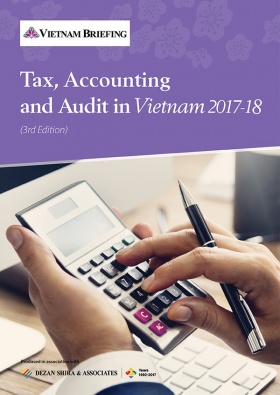Vietnam Approves Development Strategy for the Banking Sector till 2025
On August 8th, 2018, Vietnam issued Decision No.986/QD-TTg (“Decision 986”) on the Development Strategy of Vietnam Banking Sector to 2025, with a vision to 2030. The strategy aims to increase independence and accountability of its central bank, the State Bank of Vietnam (SBV) to ensure efficient management of monetary policies, inflation control, and increase support for economic stability.
In addition, it also focuses on increasing the transparency of local banks and ensuring that the sector functions in accordance with international norms. Currently, the country has nine wholly-owned foreign banks, four state-owned banks, and 31 joint-stock banks.
Major objectives
According to Decision 986, below are the major objectives the government aims to achieve to strengthen the banking sector.
- Increase the SBV’s independence and accountability with respect to monetary policies and inflation control to ensure sustainable economic growth;
- Reduce the number of foreign exchange transactions and achieve a ratio of foreign currency deposits of less than 7.5 percent by 2020, and five percent by 2030. In addition, Decision 986 also aims to completely stop foreign currency lending by 2030;
- Increase the efficiency and capacity of inspection and supervision by the SBV and include credit institutions within the ambit of the SBV’s supervision. By 2025, inspection and supervisions should be in accordance with the Basel banking supervision rules;
- Promote non-cash payments and increase ATM/POS (Point-of-sale) networks. By the end of 2020, the cash to total liquidity ratio should be less than 10 percent, and less than eight percent by the end of 2025;
- Increase the access to banking and financial services offered by credit institutions among citizens and enterprises, especially in the rural and poor areas; and
- Develop the credit institutions in accordance with the socio-economic conditions and develop “green credit” for an environment-friendly economic growth.
Periodic objectives
The government has set periodic objectives, which would help them to compare and efficiently manage the implementation of the development strategy.
2018 to 2020
- Restructure the credit institutions system to manage bad debts and ensure the interests of depositors. In addition, Decision 986 also aims to maintain the stability of such institutions and reduce the number of weak credit institutions; and
- Continue to improve the financial sector, particularly credit institutions in line with international norms. Also focus on issues in credit institutions such as cross-investment, cross-ownership, ownership of manipulation, and promote divestments.
End of 2020
- At least 12 to 15 commercial banks should apply Basel II standards, international banking regulations issued by the Basel Committee on Bank Supervision, which sets minimum capital requirements and risk management methods for banks. One or two commercial banks should be among the top 100 largest Asian banks;
- Increasing the share of non-credit services to the total income of a commercial bank to around 12 to 13 percent. Also, list shares of joint stock commercial banks on the stock exchange; and
- Ensure that the bad debt ratio stays below three percent.
2021 to 2025
Credit institutions should operate in accordance with international standards. In addition, Decision 986 also focuses on increasing the competitiveness and transparency of such institutions.
End of 2025
- Maintain the bad debt ratio below three percent;
- Increasing the share of non-credit services to the total income of a commercial bank to around 16 to 17 percent;
- Most banks should follow the Basel II standards; and
- At least two to three commercial banks should be among the top 100 largest banks in Asia and three to five banks should be listed on foreign stock markets.
The implementation of Decision 986 which is already in effect, will be supervised by the SBV. It will also be responsible for formulating plans and tasks focusing on banking legal framework, monetary regulations, foreign exchange, and payment systems.
Vietnam Briefing is produced by Dezan Shira & Associates. The firm assists foreign investors throughout Asia and maintains offices in China, Hong Kong, Indonesia, Singapore, Vietnam, India, and Russia.
Please contact vietnam@dezshira.com or visit our website at www.dezshira.com.
- Previous Article Vietnam to Restrict Surging Scrap Imports
- Next Article Relocating to Vietnam to Mitigate the Effect of the US – China Trade War








